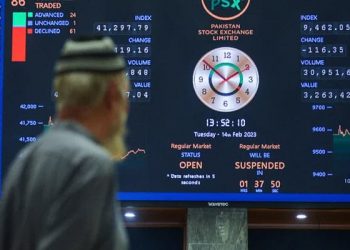The World Bank’s latest South Asia outlook report reveals a positive projection for Pakistan’s economic outlook, anticipating a rise to 2.4% in the fiscal year 2024/25. The forecast takes into account an expected easing of the inflation rate, signaling potential recovery.
In the preceding fiscal year (FY2022/23), Pakistan witnessed a contraction in total output, estimated at 0.2%, attributed to the aftermath of the 2022 floods and increased political uncertainty. During this period, consumer price inflation remained high, partly influenced by currency depreciation in early 2023.
Encouragingly, by late 2023, the Pakistani rupee demonstrated signs of stabilization, driven by several factors. These included enhanced liquidity in the foreign exchange market due to stricter enforcement of regulations, a reduction in the money supply, a balance-of-payments surplus resulting from low import demand, and a moratorium on Chinese debt repayments.
FEBRUARY 8: PAKISTAN PRESIDENT AND ELECTION COMMISSION AGREE ON GENERAL ELECTIONS DATE
Encouragingly, the Pakistani rupee showed encouraging signs of stabilisation by late 2023, supported by a number of factors. These included reduced money supply, a surplus in the balance of payments from low import demand, a moratorium on Chinese debt repayments, and increased liquidity in the foreign exchange market as a result of tighter regulation enforcement.
Even with these encouraging signs, the economy is expected to grow by 1.7% in the fiscal year 2023–2024 (July 2023–June 2024). As a result of high debt service payments, contractionary fiscal policy is expected, and the monetary policy is expected to remain tight to control inflation. A further factor predicted to contribute to the sluggish growth of private demand is low confidence brought on by political unrest.
Looking ahead, the report highlights scheduled or planned parliamentary/national assembly elections in 2024. The heightened uncertainty surrounding these elections could potentially dampen private sector activity, including foreign investment. If coupled with political or social unrest and increased violence, these factors could further disrupt and weaken economic growth.
Moreover, in countries with weak fiscal positions, an upward trend in spending before elections could exacerbate macro-fiscal vulnerabilities. However, the report suggests that the implementation of policies aimed at reducing uncertainty and strengthening growth potential post-elections could lead to an improvement in economic prospects.



















